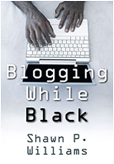Paris Texas NAACP Brandon McClelland Position Statement & Hate Crime statement
From Paris Texas NAACP President Dr. Joann Ondrovik
NAACP Paris, Texas – Unit 6213 October 28th, 2008
Brandon McClelland Position Statement
On October 28th, 2008, members of the Paris, Texas NAACP – Unit 6213 met to discuss the murder of Brandon McClelland and our zero tolerance response to any hate crime in our community.
The Paris NAACP first offered prayers and support to the family of Brandon McClelland. His tragic and untimely death should give us all reason to pause.
Any death resulting from a criminal act is reprehensible; however, a criminal act motivated by racial or cultural hatred should find no justification in the laws of man, nor should it seek sanctuary in the soul of our community. Criminal behavior, particularly a violent murder that raises the suspicion of racial bigotry, calls for a united and passionate, no-tolerance, community response combined with dedicated efforts to seek evidence, to comfort the victim and to present facts as opposed to opinions, so that the appropriate verdict is sought.
We the members of the Paris, Texas NAACP – Unit 6213 understand that nothing can restore the life of Brandon McClelland, but we refuse to tolerate a death based on racial hatred. Therefore, we expect and demand that the death of Brandon McClelland be investigated diligently, that the motives of the suspects be carefully examined and that the evidence in the case be faithfully followed for a determination of the existence of racial hatred as a motive in his violent death.
Approved in unanimous voice by the NAACP Paris, Texas Unit 6213 Executive Committee and Board
October 28, 2008
Dr. Joann Ondrovik,
President, NAACP Paris, Texas Unit 6213
HATE CRIMES: Do We Have a No-Tolerance Policy?
Hate Crimes? The very phrase is a passionate one, defined as criminal behavior based on targeting a victim because of religion, sex, race, age, or disability. The criminal message is a powerful psychological signal that the victims are either unsafe or unwanted in the community.
This message has no place in Paris, Texas. Expressing our intolerance of racial hatred and racially motivated crimes is a religious, moral and community mandate – a message that requires passionate repetition in every home, church, and business in Paris, Texas.
In Paris, Texas U.S.A., as in other cities in our country, the commission of a crime generates a corresponding governmental obligation to investigate and to prosecute those responsible. Law is the filter for the government, allowing a sifting-through of emotions in order to reach “just the facts” (the evidence). While we may be a government of laws; we are a people of passion, and passion plays an essential role in criminal justice.
Victims must feel emotional relief, and communities must feel safeguarded and secure. Citizens need to be able to rest their heads at night trusting that somehow, in the middle of their fear, anger, resentment, or frustration …there is hope that their emotion will somehow be addressed in the journey toward the final decision called “justice.”
Just as a community cannot tolerate the abuse of a child, the rape of a citizen, or the assault of an elderly person, a community cannot tolerate a crime motivated by racial hatred or bigotry. Hate Crimes demand a priority response because of the emotional and psychological impact on both victims and the community and the potential creation of community feelings of isolation, lack of protection, and fear – feelings that are most effectively addressed by quick and decisive steps that reinforce a community’s sense of security and confidence.
Hate Crimes create feelings of fear and vulnerability, leaving victims and community members to ask “Is my child safe?” or “Is my family safe in this community?” A slow or dispassionate community response to Hate Crimes can damage and fragment the community and create frustration and suspicion of “other” groups – and of the power structure that is supposed to protect them.
In our country and in our state of Texas, we have laws that proscribe harsh punishment for those found guilty of Hate Crimes. These laws, approved and adopted in our democratic system, establish a no-tolerance policy for Hate Crimes.
The final verdict in the Brandon McClelland murder is several months away, but our community is being challenged by the passions surrounding the case. Opinions are being offered as fact. Some citizens have already reached conclusions based on incomplete information.
Hopefully, this will not prevent us from listening to each other in the months ahead. And we need to hear repeated from those in charge of “justice” decisions, the simple and passionate position statement that “race crimes will absolutely not be tolerated in Paris Texas.”
Dr. Joann Ondrovik
President, NAACP Paris, Texas Unit
JOANN ONDROVIK, PhD, MS PsychoPharmacology
Psychologist-Director
Allied Counseling & Forensics
903/785-0746 Fax 903/783-0727
PARIS, TEXAS 75462




